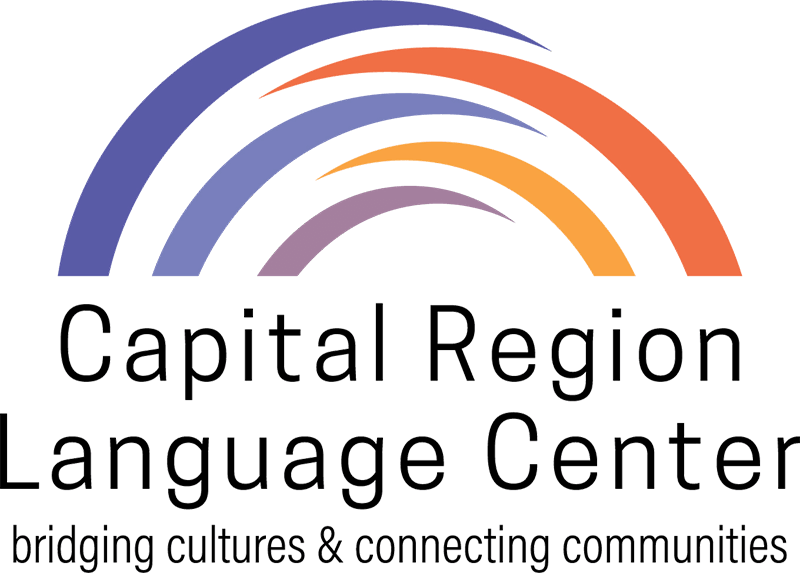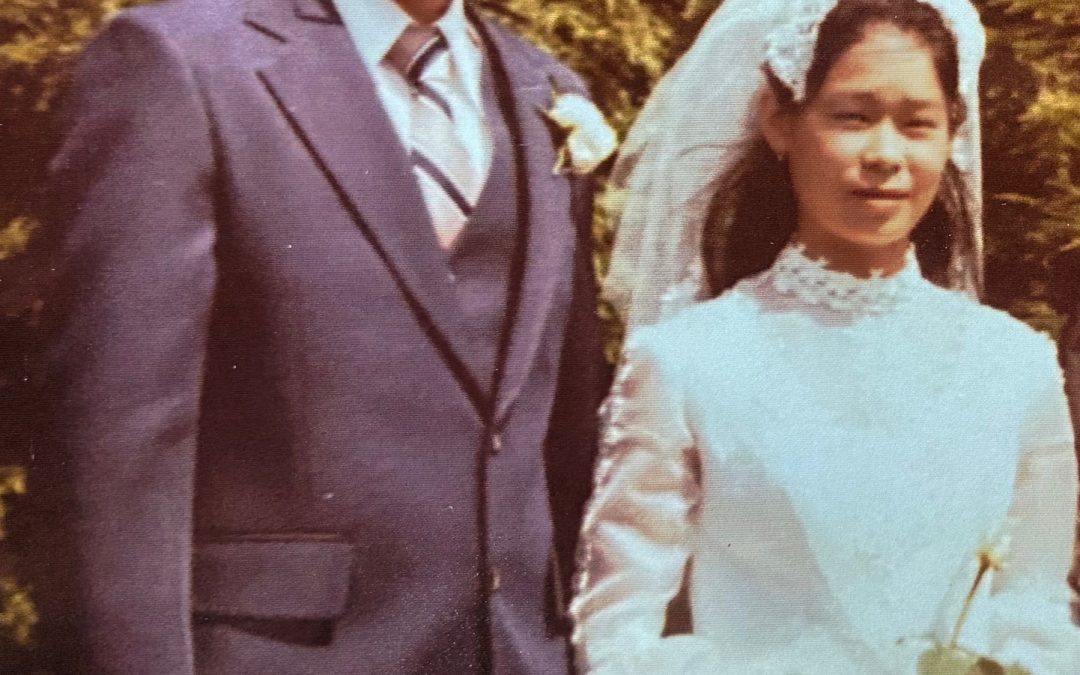A wildlife management expert spends time each week learning the Korean language and his heritage.
Neil Tregger spends most days keeping animals out of people’s homes. As co-founder of Hudson Valley Wildlife Solutions, he removes bats, sets traps for raccoons and seals up buildings and homes to keep out squirrels and other wildlife.
Since 2019, he has also been welcoming in his Korean background with weekly classes at Capital Region Language Center.
“I’m half white and half Korean,” he explains. “Growing up in Connecticut, I considered myself a white kid. It wasn’t until college that I saw groups of Asian students and from then on, it was a part of my identity I needed to better understand.”
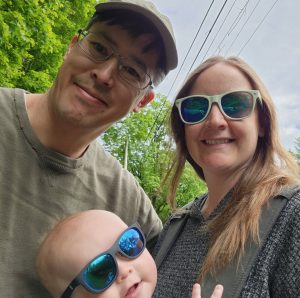
Neil Tregger, left, with wife Angelica and son Vincent.
Finding Love in Korea
Tregger’s father was stationed in Korea in the 1970s with the US Army and met his mother there.
“She didn’t speak English, he didn’t know Korean, but somehow, they fell in love,” he explains.
When his father returned to the US, Tregger’s mom began the difficult visa process, eventually joining him in America, where they were wed.
“My dad’s family always said my mother was the best gift he could have given our family,” he recalls.
Tregger’s mom had to learn English quickly to not feel isolated. As a result, she didn’t speak it at home.
“It kind of prevented me from learning Korean,” he explains. “She almost lost her language because she didn’t have a community. She assimilated. When my father died in 2009, she discovered Netflix and regained it all.”
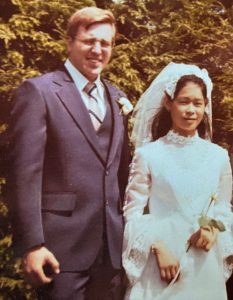
Tregger’s late father, Keith and mother, Hae, on their wedding day.
“The Broken Part of Poverty”
In 2010, he and his mom returned to Korea, in search of her village.
“It was near Seoul, on a mountain, but they had leveled the mountain, so her home was gone,” he recalls. “After 50 years, she wanted to go back and couldn’t.”
Tregger says another loss are the grandparents, aunts, uncles and cousins he never met.
“I don’t know half of my family. That’s the broken part of poverty,” he says. “After the Korean War, many families were split up. My mom left and never talked about Korea much. She did share what it was like to go without food and health care – things I never experienced.”
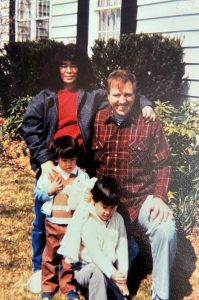
Neil, bottom left, with his older brother Nathan (front) and parents, growing up in Connecticut.
Learning a Language is Like Learning Bird Calls
In 2019, a Google search connected Tregger with Capital Region Language Center. Since then, he takes time out each work week to study Korean language and culture.
“It has helped me understand my mom,” he says of the experience. “Korean people are very strong because of their history. My dad always called her ‘The General.’ When my big complaint is bad Internet service, she just rolls her eyes.”
Tregger equates learning a new language to a college course in ornithology, the study of birds.
“We learned by sight and sound,” he explains. “So, when I’m in the woods, I don’t hear noises, I can tell the difference between a robin and a nuthatch call.”
The same is happening with Korean language.
“I can feel the pieces coming together when I watch a Korean drama on Netflix,” he says. “I’m more able to separate things, understand conversations. It is getting clearer.”
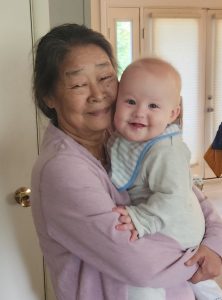
Tregger’s mother and son.
YouTube is a Gift, But Can’t Replace In-Person Language Instruction
Tregger considers himself a visual learner and finds reading and writing Korean much easier than speaking. For extra help, he relies on YouTube.
“Out of all the subscriptions out there, I pay for YouTube Premium,” he says. “From fun cartoons to very, very basic pronunciation, they break everything down. It is the most worthwhile app on my phone!”
He says it could never replace Capital Region Language Center.
“You need concrete instruction to learn a language properly,” he says. “They provide the structure and hire high quality teachers. My current instructor, Sonya Kim, does a great job reviewing concepts and won’t move forward until I’ve mastered something.”
CRLC is Opening Up a New World
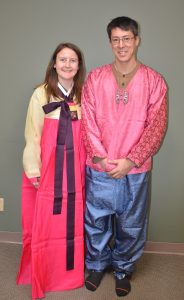
The Tregger’s in traditional Korean clothing at CRLC’s Lunar New Year celebration.
Tregger says being part of a local school has also provided opportunities cultural experiences, through the many events that CRCL hosts throughout the year at its Albany location.
“I was able to bring my wife and 18-month-old son to celebrate Lunar New Year,” he says.
Tregger came to CRLC to understand his heritage and looks forward to breaking up busy work weeks on ladders and in basements, with Korean classes.
“I feel privileged to work in a private class with my teacher,” he says. “Being able to learn something, whether it’s piano or a new language, it opens up a new world.”
If you are interested in learning more about language classes, contact us today or check out a list of classes.
